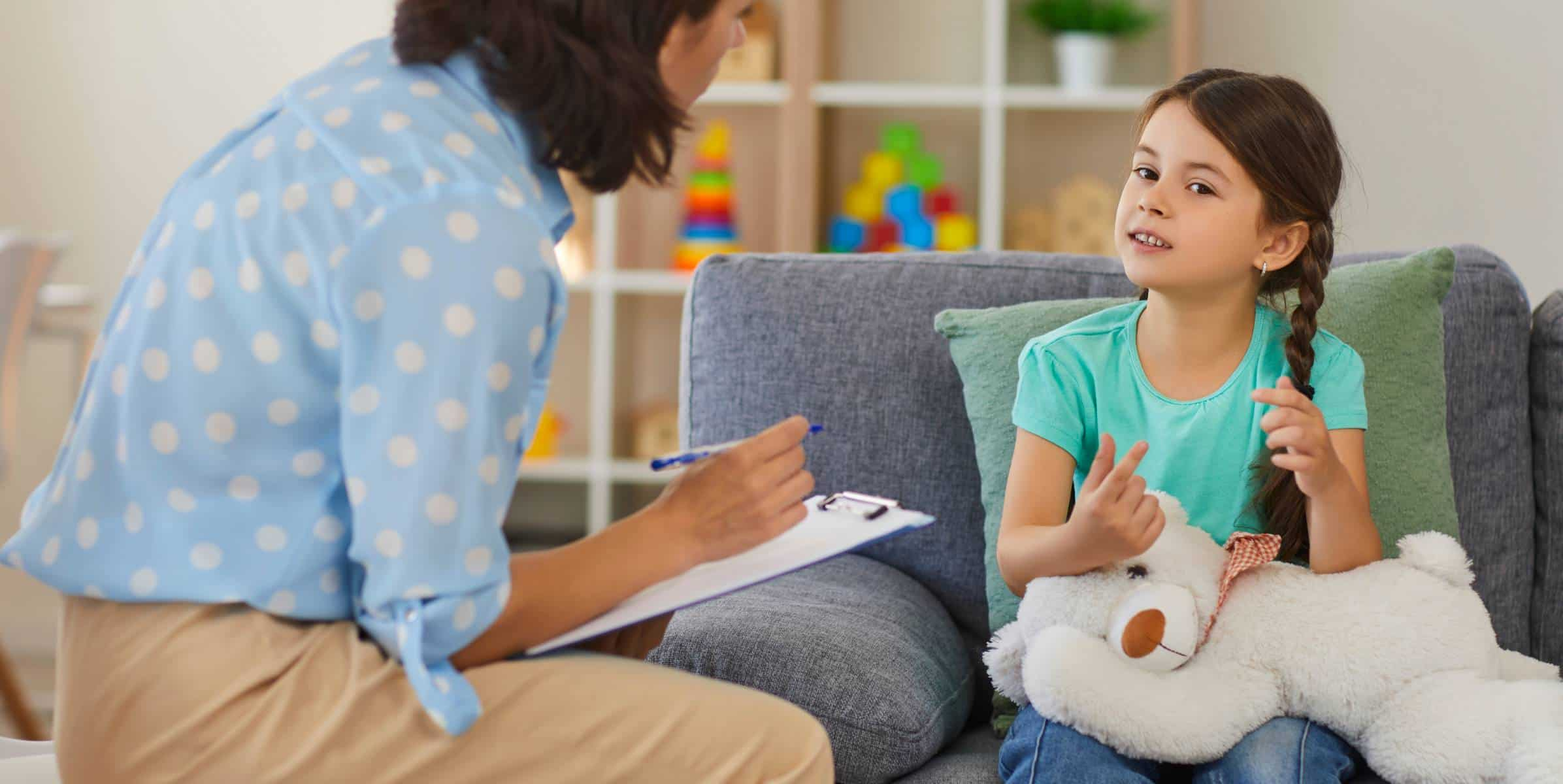How-To Maintain Open Communication With Your Teenagers
To maintain open communication with your teenagers, focus on fostering trust and understanding. Use active listening and show mutual respect to build healthy relationships and navigate tough topics effectively. Setting clear expectations and boundaries promotes respect and creates a safe space for open dialogue. Encourage your teen to share opinions and feelings without fear of judgment. Building trust through honesty and quality time strengthens your bond. Remember, handling difficult conversations with empathy is essential. Utilize nonverbal cues and limit technology to enhance face-to-face interactions. Nurturing emotional intelligence also plays a key role.
Key Takeaways
- Foster trust through active listening and respect.
- Set clear expectations for communication and boundaries.
- Encourage open dialogue without judgment.
- Build a foundation of honesty and reliability.
- Handle difficult conversations with empathy and understanding.
Importance of Teen Communication

Establishing open communication with teenagers is essential for fostering trust, understanding, and positive relationships within the family dynamic. Parenting styles play a vital role in shaping how teenagers communicate with their parents. Authoritative parenting, characterized by warmth and reasonable boundaries, often leads to healthier communication patterns compared to authoritarian or permissive styles. By being supportive yet firm, parents can create an environment where teenagers feel comfortable expressing themselves.
Peer influence also greatly impacts teen communication. Adolescents often seek validation and advice from their friends, which can sometimes hinder open conversations with parents. Understanding the influence of peers allows parents to approach communication in a way that acknowledges this external factor while still emphasizing the importance of family connections.
Setting Communication Expectations
Clarify your expectations regarding communication with your teenager to create a framework that promotes understanding and mutual respect within your relationship. Setting clear expectations is vital in fostering open communication.
Clearly outline how often you’d like to check in with each other, whether it’s daily conversations or weekly catch-ups. Let them know that you value honesty and encourage them to express their thoughts openly.
Building trust is key in setting communication expectations. Let your teenager know that they can come to you with any concern or issue without fear of judgment. Emphasize that you’re there to listen and support them through any situation. By establishing trust, you create a safe space for them to share their feelings and experiences.
Additionally, discuss the importance of respectful communication. Encourage them to voice their opinions respectfully and listen actively when they speak. By setting these expectations early on, you lay the foundation for a healthy and open relationship with your teenager.
Active Listening Techniques

To truly connect with your teenager and foster a sense of understanding, mastering active listening techniques is vital. Active listening is more than just hearing words; it involves fully engaging with what your teenager is expressing, both verbally and non-verbally.
When your teenager shares their emotions, it’s essential to pay attention not only to the words they use but also to their tone of voice, body language, and the feelings underlying their words. Reflect back what you hear to show that you understand, using phrases like ‘It sounds like you’re feeling…’ or ‘I can see that this is important to you.’
During conversations, give your teenager your full attention, maintaining eye contact and avoiding distractions. Validate their emotions by acknowledging them without judgment. By actively listening and demonstrating empathy towards your teenager’s emotions, you create a safe space for open communication and strengthen your bond with them.
Encouraging Open Dialogue

Encouraging open dialogue with your teenagers is essential for building trust and connection. By practicing active listening techniques, setting clear boundaries, and respecting their opinions, you create a safe space for honest conversations.
Active Listening Techniques
When engaging in conversations with teenagers, actively listening is key to fostering open dialogue and building trust. Active listening involves not only hearing the words spoken but also understanding the underlying emotions and intentions behind them. By practicing mindful listening and honing your communication skills, you can create a safe space for your teenager to express themselves freely.
To actively listen to your teenager, make eye contact, nod to show understanding, and refrain from interrupting. Reflect back on what they’ve said to make sure you’ve grasped their message correctly.
Empathize with their feelings and validate their experiences. Effective communication is a two-way street, so encourage your teenager to share their thoughts openly without fear of judgment.
Setting Clear Boundaries
Setting clear boundaries with your teenager is essential in promoting a healthy and respectful relationship while encouraging open dialogue. Establishing these boundaries involves a process of boundary negotiation, where both you and your teenager can express your needs and expectations.
It’s important to enforce these boundaries consistently to show that they’re non-negotiable, which fosters mutual understanding and respect.
To maintain open communication, it’s key to involve your teenager in the boundary-setting process. This can lead to healthy compromise, where both parties feel heard and respected.
Respecting Their Opinions
To foster open dialogue with your teenager, it’s important to genuinely listen and respect their opinions. Empowering independence in your teen involves acknowledging their thoughts and feelings as valid, even if they differ from your own. When you show that you value their perspectives, you’re encouraging them to express themselves openly and honestly.
Teenagers are at a stage where they’re forming their identities and developing their own beliefs. By respecting their opinions, you’re helping them build confidence in their thoughts and decisions. This doesn’t mean you have to agree with everything they say, but rather that you approach their ideas with an open mind and a willingness to understand where they’re coming from.
Creating a safe space for your teenager to share their opinions without fear of judgment is essential for maintaining a healthy relationship. Remember, by respecting their views, you aren’t only fostering open communication but also nurturing their growth as independent individuals.
Building Trust and Respect

When it comes to connecting with your teenagers, building trust and respect is key.
By respecting their boundaries and rules, you show them that you value their autonomy.
Listening without judgment fosters an environment where they feel safe to open up and share their thoughts and feelings.
Trust and Communication
Establishing trust and respect with your teenager is essential for maintaining open communication and fostering a healthy relationship. Building trust involves being honest, reliable, and supportive. Show your teenager that you’re someone they can confide in by actively listening to their thoughts and feelings without judgment. Encourage open dialogue by sharing your own experiences and emotions, creating a safe space for them to express themselves.
To foster connection, spend quality time together engaging in activities that your teenager enjoys. This could be anything from watching a movie, going for a hike, or simply having a meaningful conversation over dinner. By showing interest in their world, you demonstrate that you value their interests and opinions.
Respect Boundaries and Rules
Respecting boundaries and rules is vital in fostering trust and respect with your teenager, creating a foundation for open communication and a healthy relationship. As a parent, it’s important to understand that boundaries aren’t meant to restrict but rather to establish a sense of security and mutual respect. By respecting your teenager’s boundaries, you show them that their feelings and autonomy are valued.
Incorporating rule adherence into your household helps set expectations and guidelines for behavior. Consistency in enforcing rules demonstrates to your teenager that you’re reliable and fair.
However, it’s also important to strike a balance in communication. Listen to your teenager’s perspective on the rules and boundaries you’ve set, fostering a dialogue where both parties feel heard and understood.
Building trust through boundary respect and rule adherence lays the groundwork for a strong and open relationship with your teenager. Remember, it’s not just about setting rules but about creating an environment where communication flows freely, trust is nurtured, and mutual respect is upheld.
Listen Without Judgment

To cultivate trust and respect with your teenager, it’s essential to listen without passing judgment, creating a safe space for open communication and understanding. Empathetic listening is key; put yourself in their shoes and try to understand their perspective.
Approach conversations with an open mind, allowing them to express themselves freely without fear of criticism. A non-judgmental approach fosters mutual understanding and strengthens your relationship. Remember, it’s important to listen not just to respond but to truly comprehend what your teenager is trying to convey.
By showing that you value their thoughts and feelings, you build a foundation of trust that encourages them to confide in you. Practice active listening by maintaining eye contact, nodding to show you’re engaged, and reflecting back what they’ve said to make sure you’ve understood correctly.
Handling Difficult Conversations
When broaching tough topics with teenagers, it’s crucial to approach the conversation with empathy and understanding. Handling disagreements and finding one’s way through boundaries can be challenging, but by creating a safe space for open communication, you can address these issues effectively. Tackling tough topics and addressing concerns requires a delicate balance of being supportive yet firm.
Start by actively listening to your teenager’s perspective without judgment. Acknowledge their feelings and validate their experiences, even if you don’t necessarily agree. Encourage them to express themselves honestly, and show that you’re there to support them through any difficult conversations.
Set clear boundaries for the discussion, ensuring that both parties feel respected and heard. Sometimes these conversations may lead to disagreements, but it’s important to remain calm and composed. Remember that it’s okay to take a break if emotions run high, returning to the conversation when both parties are ready to continue with a level head.
Using Nonverbal Communication
Utilize subtle gestures and body language to enhance your communication with teenagers, fostering a deeper understanding and connection with them. Body language plays a significant role in conveying unspoken messages. Your facial expressions can communicate empathy, concern, or interest.
Maintaining appropriate eye contact shows attentiveness and respect. Be mindful of your tone of voice, as it can influence the emotional tone of the conversation. Respect their personal space to show understanding and build trust.
Simple gestures like nodding or leaning in can signal active listening. Pay attention to your posture and hand movements, as they can reflect your level of engagement. Understanding nonverbal cues is essential in improving your communication skills and connecting with teenagers on a more profound level.
Developing emotional intelligence allows you to interpret their body language accurately. By honing your ability to read and respond to nonverbal signals, you can create a more open and meaningful dialogue with your teenagers.
Technology and Communication

Improving communication with teenagers involves managing the impact of technology on their interactions. In today’s digital age, screen time often competes with valuable family time. Encouraging a healthy balance is crucial to fostering open communication.
Social media plays a significant role in how teenagers communicate. While it offers a platform for connection, stressing the importance of face-to-face conversations is vital. Encouraging your teen to put down their phone during family meals or designated quality time can help strengthen bonds and create opportunities for meaningful dialogue.
Setting boundaries around technology can also facilitate better communication. Establishing tech-free zones or times within the home can encourage teens to engage more actively in conversations.
Additionally, leading by example and demonstrating mindful tech use can show teenagers the value of unplugging and being present in the moment.
Nurturing Emotional Intelligence
To deepen your connection with teenagers, fostering their emotional intelligence is essential in nurturing healthy communication and relationships. Emotional understanding plays a significant role in helping teens navigate their feelings and interactions with others.
Encourage open discussions about emotions, validating their feelings, and providing them with the tools to express themselves effectively.
Conflict resolution is another important aspect of nurturing emotional intelligence. Teach teens how to manage conflicts constructively by listening actively, taking into account different perspectives, and finding mutually beneficial solutions. Modeling healthy conflict resolution in your own relationships can also have a positive impact on teenagers.
Relationship building is at the core of emotional intelligence. Help teens develop empathy by encouraging them to empathize with other people’s feelings and perspectives. Building empathy fosters better communication and understanding in their relationships.
Frequently Asked Questions
How Can I Navigate Conversations About Sensitive Topics With My Teenager?
When talking about sensitive topics with your teenager, remember to set healthy boundaries while building trust. Approach difficult conversations with active listening. Be empathetic, practical, and insightful to foster open communication and understanding between you and your teen.
What Role Does Body Language Play in Effective Communication With Teenagers?
When communicating with teenagers, body language is key. Nonverbal cues like eye contact, facial expressions, and gestures can convey understanding and respect. Establishing boundaries through body language can help foster open and honest conversations.
How Can I Ensure My Teenager Feels Comfortable Sharing Their Feelings With Me?
To guarantee your teenager feels comfortable sharing their feelings with you, focus on building trust through open conversations and active listening. Show empathy, avoid judgment, and create a safe space for them to express themselves freely.
What Are Some Ways to Address Conflicts That Arise During Communication?
When conflicts arise during communication, remember to practice active listening. Set boundaries respectfully and aim for compromise. Conflict resolution is key to maintaining open communication with your teenagers. Stay patient and understanding throughout the process.
How Do I Adapt My Communication Style to Suit My Teenager’s Personality?
To adapt your communication style for your teenager’s personality, focus on building trust by actively listening, showing empathy, and respecting their boundaries. Understanding their individuality and preferences will help foster a deeper connection.
Conclusion
Remember, open communication with your teenagers is key to building trust, respect, and strong relationships. By setting clear expectations, actively listening, and encouraging dialogue, you can create a safe space for your teens to share their thoughts and feelings.
Remember to handle difficult conversations with care, use nonverbal communication effectively, and be mindful of the impact of technology. Nurturing emotional intelligence in your teens will also help them navigate their emotions and communicate effectively.
Keep the lines of communication open and watch your relationship thrive.

Hey there! 👋 I’m a proud mom and passionate writer, sharing my parenting journey. 📝 Join me as I navigate the ups and downs of motherhood, offering tips, advice, and a sprinkle of humor along the way. 🌟






